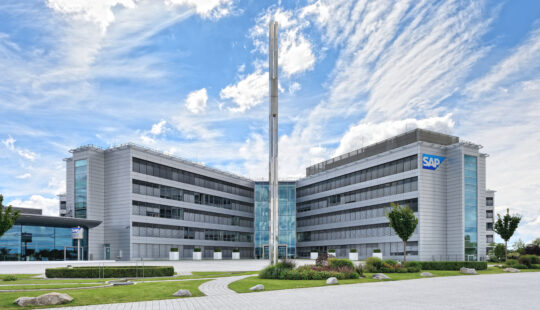Today is Human Rights Day, a day to commemorate the United Nations General Assembly’s adoption of the Universal Declaration of Human Rights. December 10 is a day to celebrate inalienable rights and freedoms that apply to all people.
“[H]uman rights are for all of us, all the time: whoever we are and wherever we are from; no matter our class, our opinions, our sexual orientation,” former UN Secretary-General Ban Ki-moon once said.
Especially in these challenging times, fighting to secure human rights is a key responsibility for governments, civil society, and businesses alike — and it is clear that collectively we need to do more given that inequalities, discrimination, forced and child labor, unsafe working conditions, unfair pay, and further human rights abuses persist in today’s economy.
The UN took stock earlier this year on the occasion of the 10th anniversary of the UN Guiding Principles on Business and Human Rights (UNGPs) and found that progress has been made to promote corporate respect for human rights, yet more efforts are needed to accelerate implementation of the UNGPs as outlined in their road map for the next decade launched last week.
At SAP, we are fully committed to playing our part and to respect and promote human rights across our operations, extended supply chain, and product life cycle. The respect for human rights is central to our long-term commitment to sustainability and the UN Sustainable Development Goals, as well as core to how we execute on our purpose to help the world run better and improve people’s lives.
I therefore welcome the uptake in legislative action around the world, particularly in Europe, which I hope to see become consistent globally and well thought out. Businesses and investors across the globe are backing this, with the list of statements calling for mandatory human rights and environmental due diligence steadily growing. In addition, public support is overwhelming: over 80% of citizens from across multiple EU countries want strong laws to hold companies liable for overseas human rights and environmental violations.
With stakeholder demand and legislation surging, companies have to make human rights a priority if they have not already. While it might be obvious that there is no way around it from a rational or ethical perspective, how to make it real and integrate human rights as part of your corporate sustainability journey is not a trivial thing.
Depending on the industry and the countries in which a company is operating, its impact on individual human rights varies. Complexity is added when looking across the entire value chain, which at SAP starts with our employees and respecting their rights but of course extends to our ecosystem of suppliers, customers, partners, and to the communities in which we work and live.
The challenge of getting this right and complying with relevant legislation is increasing. Therefore we have established a new human rights due diligence project at SAP to lead by example, take our existing human rights commitment statement, governance, disclosure, and processes to the next level, and to learn from our own adoption along the way.
At the same time, we have been working to expand our solution offering to support our customers’ human rights ambitions. Questions we seek to address within this twofold approach cover a range: How do we prevent workplace accidents and safeguard safety? How do we identify and reduce discrimination and inequality in our workforce? How do we ensure compliant working hours and payment structures for all our entire workforce — both internal employees and our external workforce? How do we avoid purchasing products and raw materials that were produced involving forced or child labor?
Digital innovation can be a force for good in this regard and help identify and prevent negative business-related impacts on human rights. For example, aggregated analysis and reporting of human resources (HR) data as provided by SAP SuccessFactors Human Experience Management Suite allows you to gain insights into the composition of the workforce — including who is hired, developed, rewarded, and promoted — as a foundation to build a diverse, equitable, and inclusive workforce. Making risk assessment and due diligence part of the procurement process with SAP Ariba solutions is another example and contributes to detecting and eradicating forced and child labor, among others.
Yet, we also need to address potential risks and make sure that our technology, such as artificial intelligence (AI), does not violate human rights. To help ensure that our software is only used in line with ethical standards, we have have developed guiding principles for AI and set up global AI ethics policy and governance.
Avoiding harm and complicity in human rights abuses is at the heart of respecting human rights. However, there is more we can do to do good and promote human rights in a positive way. With programs like 5 & 5 by ’25, SAP aims to foster social procurement and to direct five percent of SAP’s addressable procurement spend with social enterprises and five percent with diverse businesses by 2025.
SAP is furthermore committed to inclusive, quality education, and strives to include all people in the digital economy. In 2020, together, we engaged 2.3 million youth and trained 117,000 teachers in our digital skills programs that spanned 113 countries. These, together with further initiatives focused on diversity, equity, and social justice, contribute to our ambition to chase zero inequality.
But is that enough? Certainly not!
In celebration of Human Rights Day 2021 and its theme, “All Human, All Equal,” I invite everyone to join in to #standup4humanrights. All of us are called upon to follow the appeal: “By committing to reduce inequality by advancing all human rights for everyone, we can overcome global economic, social, health, and environmental crises and conflict, and build societies where all people rise together by sharing power, resources, and opportunities equally.”
Daniel Schmid is chief sustainability officer of SAP SE.



